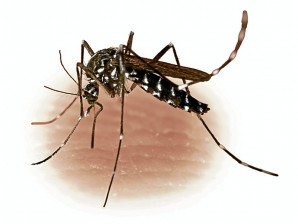Lab solutions less effective vs dengue, says doctor
MANILA, Philippines—Filipinos should prioritize “more practical” measures to fight dengue rather than some of the expensive laboratory solutions proposed abroad, the country’s health research chief said.
“Sometimes the solution is staring us in the face,” said Dr. Jaime Montoya, executive director of the Philippine Council for Health Research and Development (PCHRD), during the recent launch of the dengue alert website.
The website https://oltrap.pchrd.dost.gov.ph will monitor every week any potential outbreak in a city or municipality based on the ingenious ovicidal/larvicidal (OL) traps to be set up in all 45,034 public schools nationwide.
Two traps will be installed in each one of the 449,559 classrooms.
The mosquito eggs found in the OL traps will indicate the mosquito density index in the area.
The website will show if the weekly index reaches the critical threshhold, which should prompt more search to destroy mosquito breeding sites.
The dengue virus-carrying Aedes aegypti mosquitoes were found to prefer to hatch their eggs in clean, stagnant water and damp rough surfaces in dark areas.
Ingenious yet affordable
Montoya said these ingenious yet affordable OL traps are effective in controlling the mosquito population by destroying the eggs, thus reducing the risk of people being bitten by a dengue virus-carrying mosquito.
The weekly monitoring will also show whether the dengue preventive measures are working, he added.
The website will start reporting next month when all the OL traps have been distributed in the public schools and the teachers begin to report every week through text messages.
“These are simple things we should be doing. We saw this could potentially reduce the problem of mosquitoes,” Montoya said.
Practical solutions
“In our analysis, these are the practical solutions we can try,” he added.
He was asked about the recent proposal of Australian scientists to infect mosquitoes with bacteria to kill the dengue virus and reduce the life span of mosquitoes.
Montoya said the field results from the experiments may not be realistic “because Australia has no dengue so the environment is artificial.”
“So it may not actually work in the actual environment. So let’s prioritize the more practical measures with simple solutions,” he said.
No vaccine against dengue has been developed although a quick dengue diagnostic kit is already in the pipeline.
“If we’re going to do the same thing we’ve been doing in the last ten years, we won’t solve the problem. We have to be more innovative, more practical and more adventurous,” Montoya said.
The Department of Health said 42,207 dengue cases have been reported from January 1 to June 8 this year.
Of these, 193 people have died from the dengue hemorrhagic fever, including 50 patients who died this month.
Health officials said dengue peaks from August to October during the rainy season.
